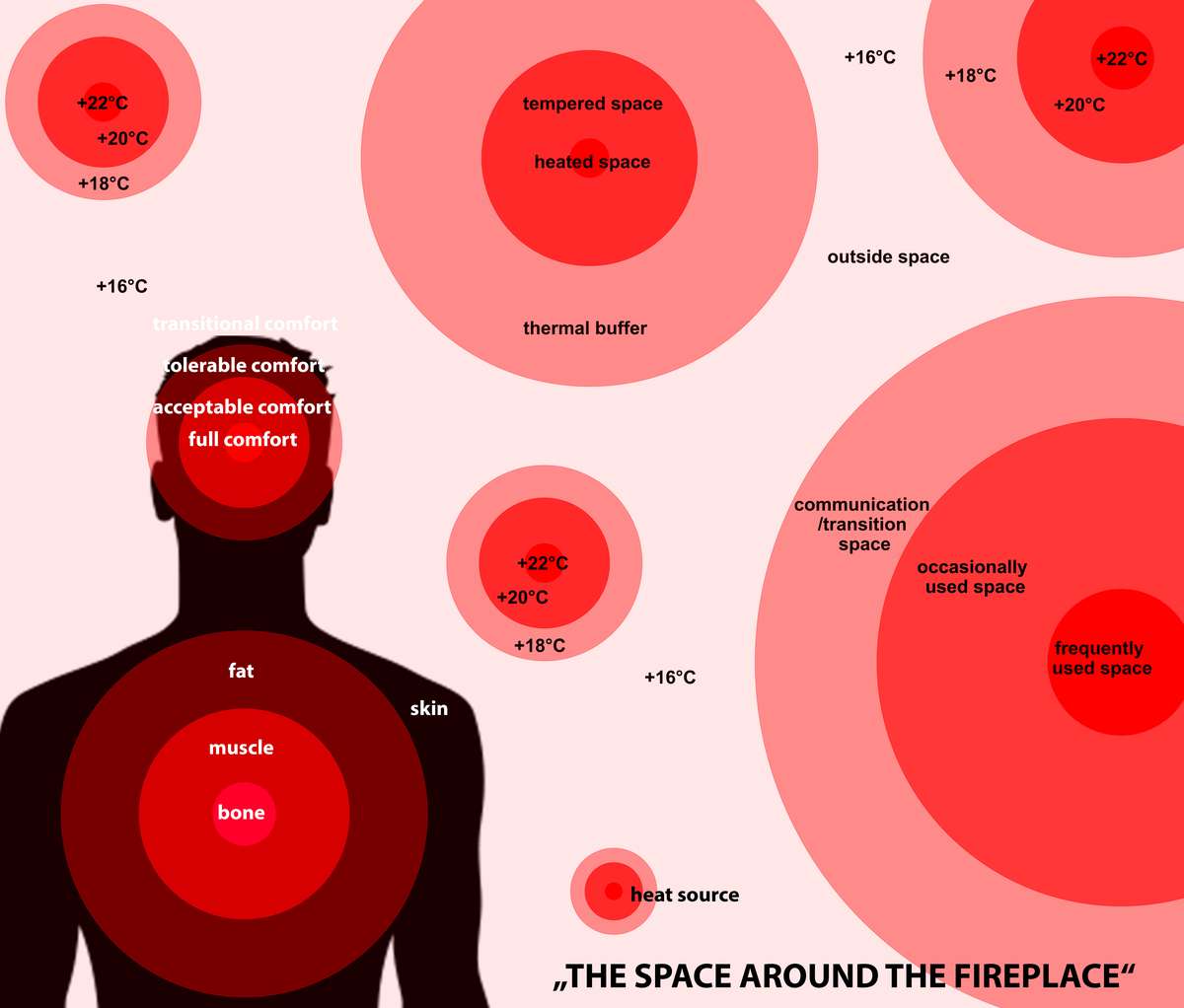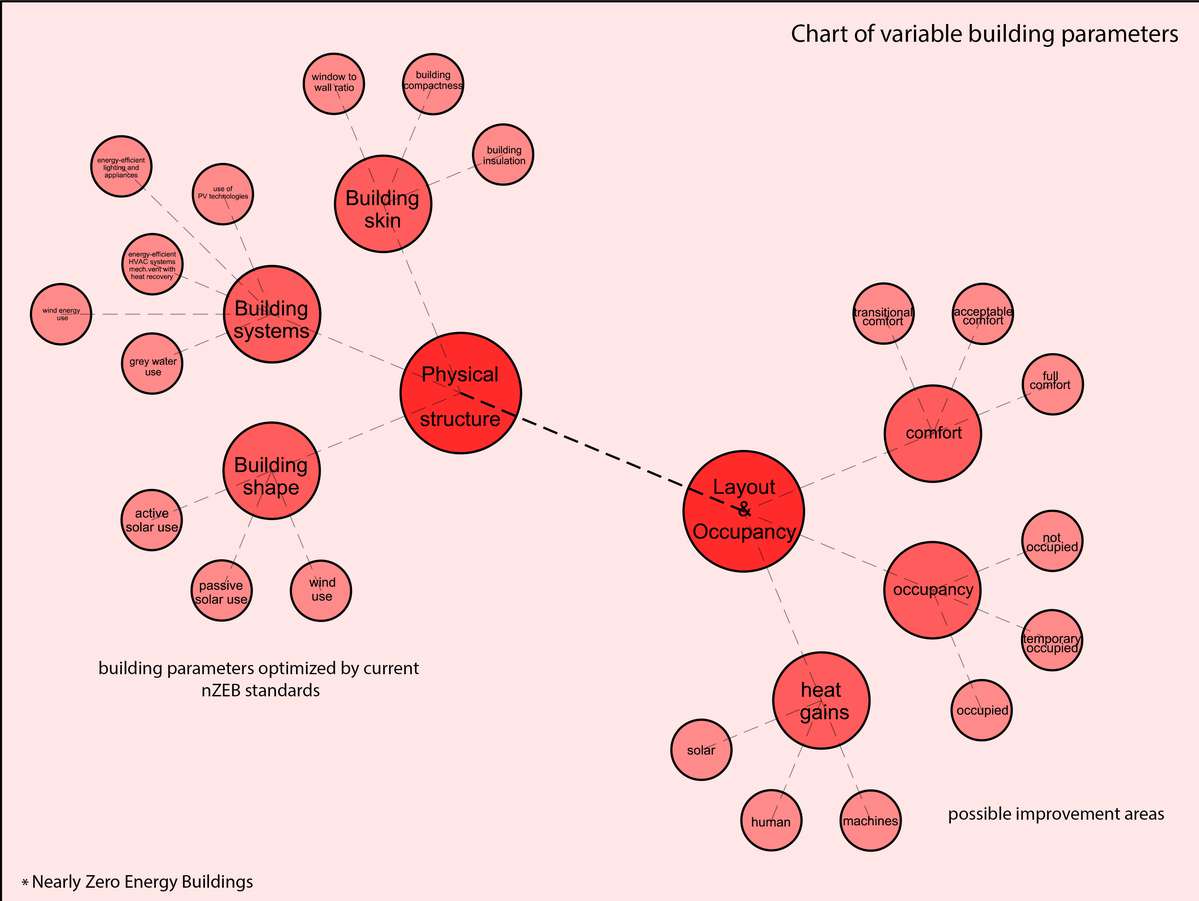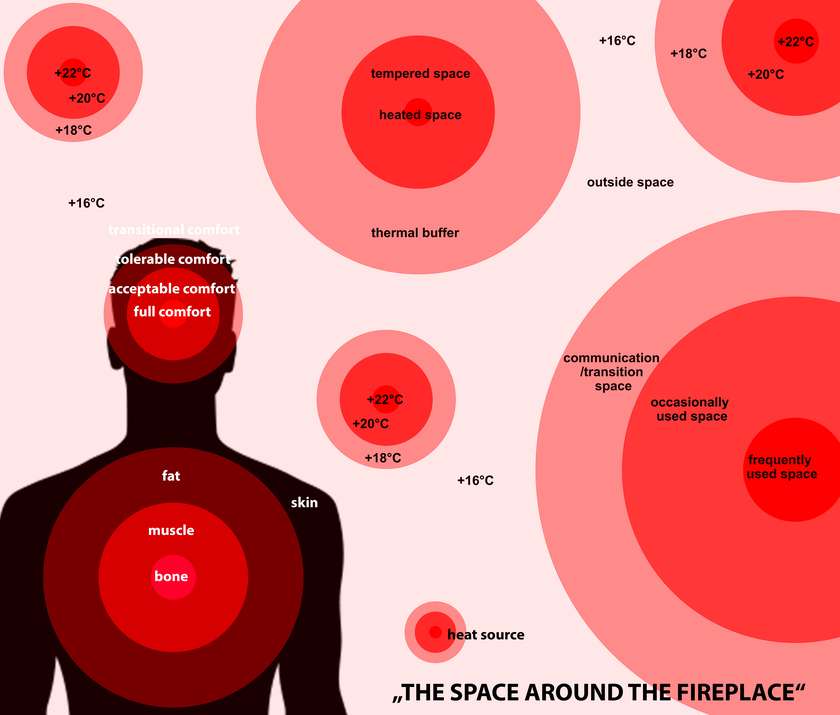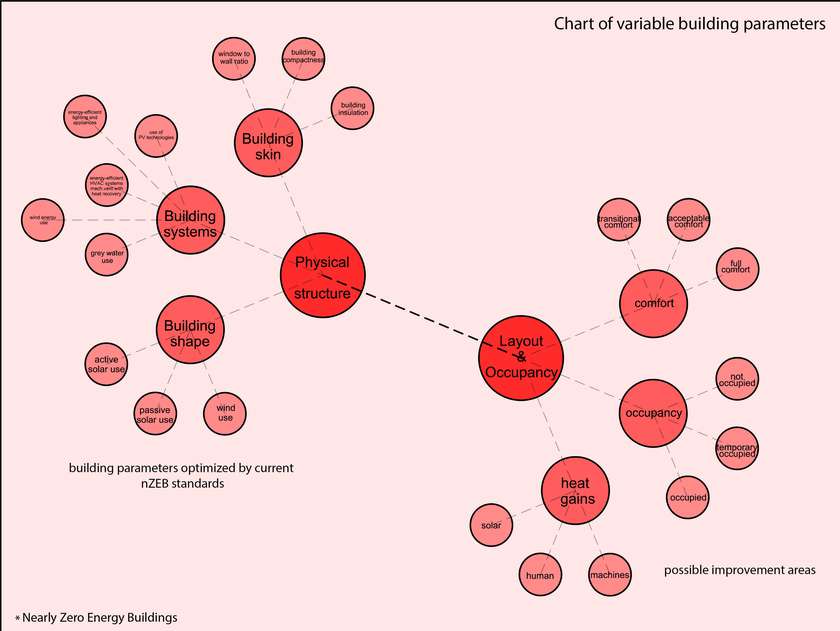Idea by
Aleksandar Tepavcevic
Institute of Buildings and Energy, Graz University of Technology
Call for ideas 2020
“The space around the fireplace”
“The space around the fireplace”

- Systemic changes
A proper thermal comfort is essential for the well‐being and the productivity of the human race, yet
the price paid for such a comfort, in the light of the ongoing global warming and climate changes, is
increasing every day. The challenge of creating a more sustainable society is tackled mostly through
increased use of renewable energy sources, optimization of the building shape and envelope, and
through the implementation of energy‐efficient building systems. The aim of this idea is to address
further energy‐saving potentials achievable by the redefinition of the thermal comfort inside the
buildings, by the introduction of transitory thermal comfort categories. Coupling the disposition of the
functional requirements with the viable external and internal heat gains, expected comfort levels and
user occupancy schedules, thermal and functional zoning of the buildings around the thermal
hotspots could create new layouts, which are both spatially logical and more energy‐efficient.


“The space around the fireplace”
“The space around the fireplace”

- Systemic changes
A proper thermal comfort is essential for the well‐being and the productivity of the human race, yet
the price paid for such a comfort, in the light of the ongoing global warming and climate changes, is
increasing every day. The challenge of creating a more sustainable society is tackled mostly through
increased use of renewable energy sources, optimization of the building shape and envelope, and
through the implementation of energy‐efficient building systems. The aim of this idea is to address
further energy‐saving potentials achievable by the redefinition of the thermal comfort inside the
buildings, by the introduction of transitory thermal comfort categories. Coupling the disposition of the
functional requirements with the viable external and internal heat gains, expected comfort levels and
user occupancy schedules, thermal and functional zoning of the buildings around the thermal
hotspots could create new layouts, which are both spatially logical and more energy‐efficient.

